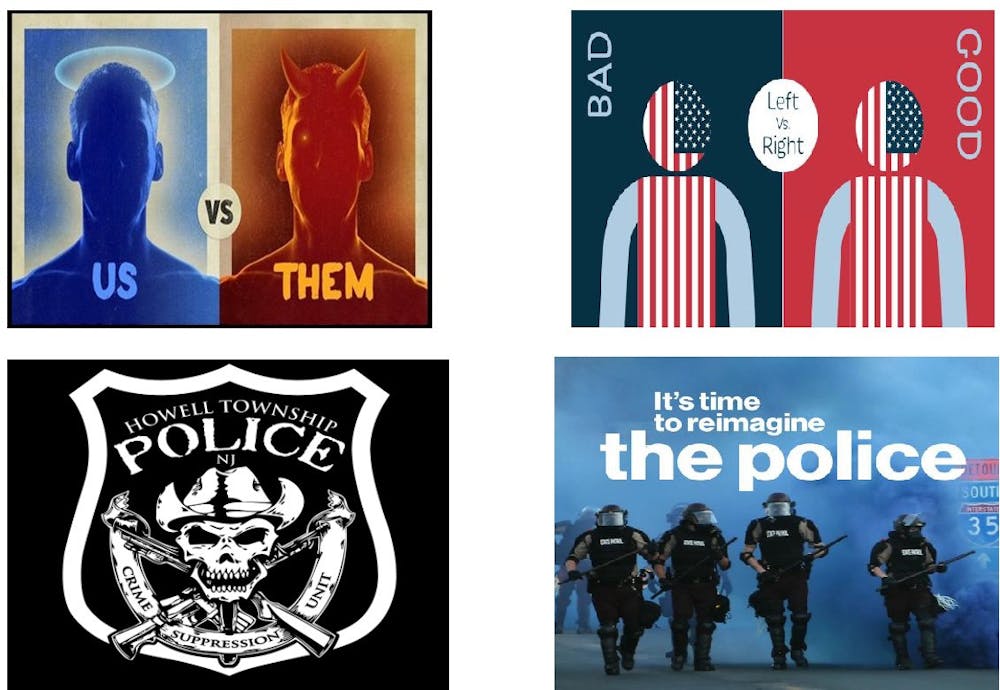By Tristan Weisenbach
Managing Editor
More than 200 New Jersey police officers completed a mandatory retraining in Trenton on March 14 after they attended a controversial law enforcement training conference in Atlantic City in October 2021.
The retraining was ordered by Attorney General Matt Platkin after a report by the New Jersey Office of the State Comptroller uncovered that the 2021 training, organized by a firm called Street Cop Training, taught unconstitutional and discriminatory practices, according to CBS News.
“The guidance promoted during that event was anathema to the values and the conduct that we expect of our law enforcement officers,” Platkin said in a statement to CBS.
According to the OSC report, 54 interstate, state and local government entities combined spent an estimated $75,000 to send officers to the 2021 conference. However, the report detailed additional anticipated costs associated with the conference, including future officer retraining and litigation related to unconstitutional police practice or discrimination lawsuits. Street Cop records show that between 2019 and 2022, the firm received at least $320,000 from multiple New Jersey agencies for other trainings, according to the report.
Many unconstitutional and discriminatory practices were taught at the 2021 conference, according to the report. One finding was Street Cop’s “Reasonable Suspicion Factors (RAS) Checklist,” a listing of behaviors that was distributed to attendees that officers could use in justifying traffic stops.
Below is an excerpt from the report that outlines behaviors the RAS checklist deems as “suspicious”:
“The checklist advises that it is suspicious if the car’s occupants are too nicely dressed if they are traveling a long distance, if they are driving a minivan without a child seat in it, if the car has a ‘lived-in look’ with food wrappers and water bottles, or if the car has a trash bag in it for garbage.
It is suspicious if the car has a single key ignition, does not have an EZ Pass, contains more than one cell phone or a backpack, or there is a lawyer’s business card visible inside the car. It is suspicious if a motorist leaves on their turn signal after getting pulled over (referred to as the ‘Felony Flasher’), and it is also suspicious if the motorist shuts off the car when being asked to step out.
If a motorist calls anyone—for example, a family member or friend to tell them they have been pulled over—that too is suspicious. And, among other things, the checklist states that it is suspicious if a ‘driver becomes very aggressive/agitated’ when the officer asks for consent to search their car ‘after a polite conversation for several minutes.’ This suggests that asserting one’s privacy rights is suspicious.
The checklist advises that officers should ask everyone they stop for their social security numbers to gauge their response, on the theory that it is an ‘extremely normal’ and common question everywhere in the United States except the ‘Mid-North and Northwest regions.’ And if the motorist questions the reasons for the stop, asks to speak with a supervisor, or says they are either heading to work or heading home, that should all be considered suspicious too.”
Police are not legally allowed to stop people for no reason, or to stop them for arbitrary reasons. For a motor vehicle stop to be lawfully executed, “a police officer must have a reasonable and articulable suspicion that the driver of a vehicle, or its occupants, is committing a motor vehicle violation or a criminal or disorderly persons offense,” according to the report.
According to a 2023 study released by the New Jersey Attorney General’s Office of Public Integrity and Accountability, “The overall volume of minority motorists stopped by [New Jersey State Police] increased from 35.34 percent in 2009 to 46.28 percent in 2021.”
“The overarching finding from the analysis of the NJ-SP data from 2009-21 is that there was extremely strong evidence of a large and persistent disparity both [in] the decision to stop as well as the decision to engage in post-stop enforcement like search, vehicular exits, use of force and arrest,” the study reads. “In general, the results were estimated with a very high degree of statistical confidence, survived multiple robustness tests, and were found across most years and troops/stations. In the opinion of this study’s author, these disparities represent strong empirical evidence that NJ-SP is engaged in enforcement practices that result in adverse treatment towards minority motorists.”
Between 2012 and 2018, there were over 100 lawsuits brought against New Jersey police departments and officers for excessive force. Last year, one New Jersey county paid $10 million in a settlement for an excessive force lawsuit, according to the report.
The OSC report also outlines ways in which it says the 2021 conference “Undermined NJ’s Police Reform Initiatives.” Presenters at the conference “made comments glorifying violence and the application of military techniques to policing,” and multiple quoted statements made by presenters are included in the report.
Tim Kennedy, a non-law enforcement presenter, made comments about “loving violence” and told those in attendance to “Be the calmest person in the room but have a plan to kill everyone.” Ralph Friedman, a former New York City police department detective, stated he felt “victorious” for having killed people while on duty, according to the report.
At least one New Jersey law enforcement presenter is quoted in the report for promoting an “us vs. them” mentality during the conference, according to the report. Hopewell Township Police Department Captain Tom Rizzo described Street Cop as “starting a god damn army.”

Images included in Rizzo’s presentation at the 2021 Street Cop conference. (Photo courtesy of the New Jersey Office of the State Comptroller)
OSC obtained and reviewed police department policies regarding anti-discrimination and harassment policies from employers of the New Jersey conference attendees and found that “most, if not all of the policies were implicated in some way by many of the speakers at the Conference.”
According to the report, presenters at the conference “made over 100 comments that touched on one or more of the protected characteristics under the NJLAD or otherwise violated the plain language of applicable anti-discrimination and harassment policies.” NJLAD stands for the New Jersey Law Against Discrimination.
Sexual references and comments were also made throughout the conference, according to the report:
“During a presentation on Day 5 of the Conference titled ‘Social Media Investigations,’ instructor Nick Jerman, a current law enforcement officer for the Montgomery County Police Department, utilized several images of women in lingerie apparently from social media, one of which he referred to as a ‘human trafficking victim.’ The use of these images did not further his presentation in any relevant way. [Nick] Jerman also suggested that attendees use the investigative techniques learned in his class to their advantage in their ‘personal lives’ and discussed uncovering information online about a woman before approaching her at a wedding. He also used an image during his presentation that said ‘work stuff, not porn.’”

Images used in presentations during the 2021 Street Cop conference. (Photo courtesy of the New Jersey Office of the State Comptroller)
No Ewing Township police officers attended the Street Cop conference, according to Ewing Police Chief Albert Rhodes. No Campus Police officers were present at the conference either, according to Luke Sacks, the College’s head media relations officer.
According to ABC Minneapolis, Street Cop has since filed for bankruptcy. The filing stated that many Street Cop employees have since quit the company, and the organization has moved its operations to Florida. At least nine states have since banned police officers from receiving training credit for participating in Street Cop programs.







